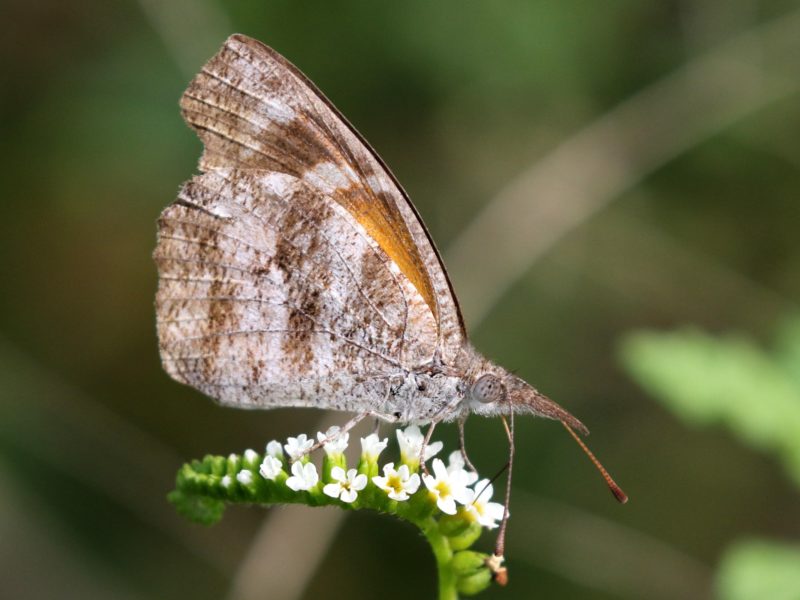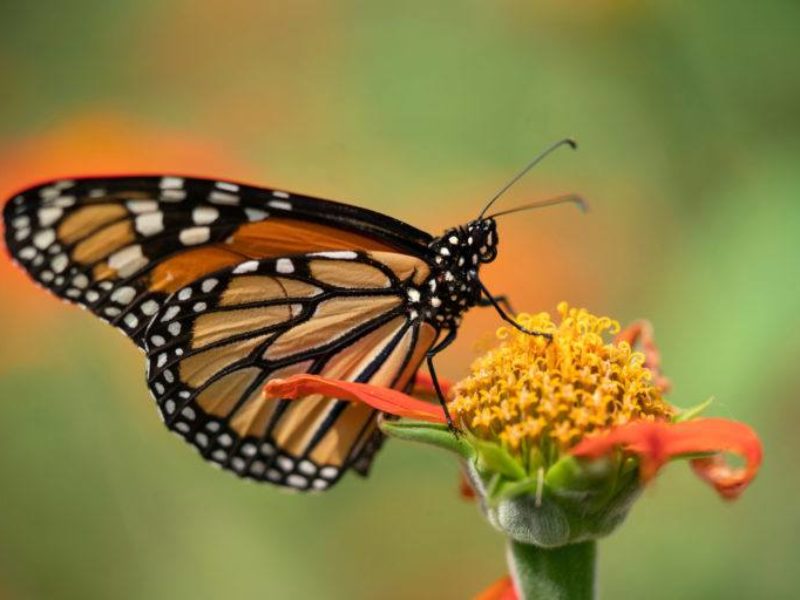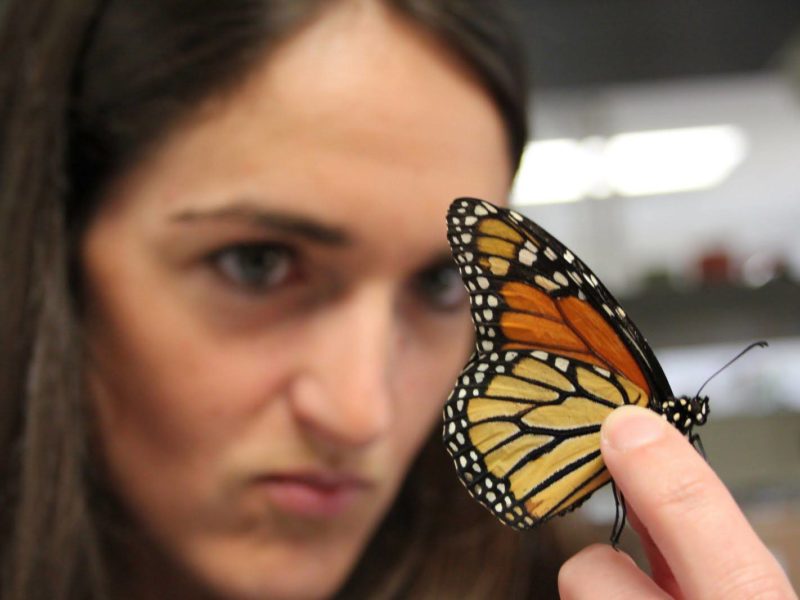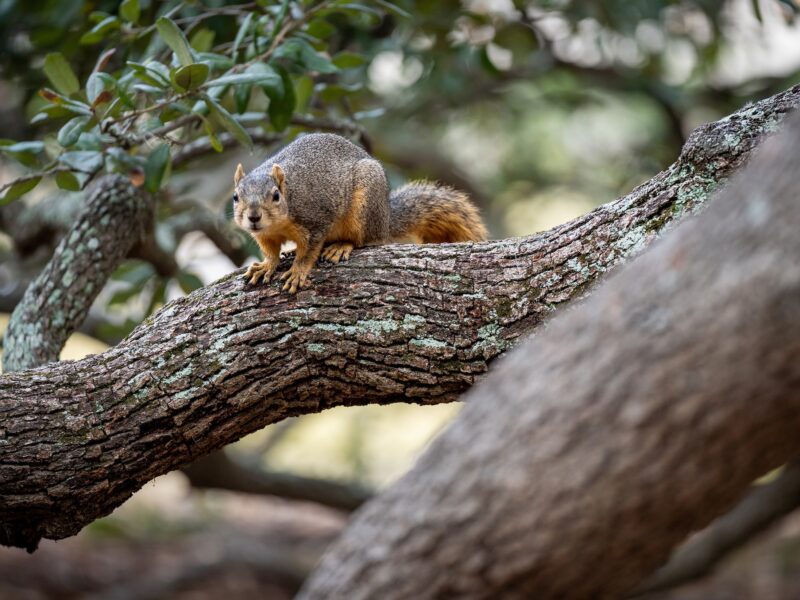Cold Spell Could Be Devastating To Monarch Butterflies
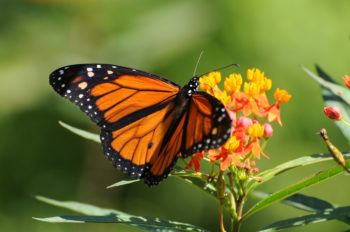
Texas’ recent frigid weather is expected to hit the Monarch butterfly population especially hard, and figures show a dramatic 50 percent decline in their numbers over the last three years, according to a Texas A&M University professor.
Craig Wilson, director of the USDA Future Scientists Program, senior research associate in the Center for Mathematics and Science Education and a longtime butterfly enthusiast, said that recent estimates show 105 million Monarchs for 2021, down from 141.5 million in 2020 and 300 million in 2019. But he adds that the population has recovered from a record low in 2013-2014 of only 34 million.
The colorful butterflies spend the winter months in colonies in Mexico, where it has also been very cold, before making their annual northward migration in the spring.
“The spring migration has yet to start out of the overwintering sanctuaries in Mexico, although there has been slight movement of some colonies down the mountains,” Wilson said. “Of course, the recent freezing of Texas means that the milkweed plants so necessary for egg laying by the migrating Monarchs have been delayed if not killed pre-emergence. So it is hoped that the Monarchs will remain a little longer in Mexico.”
Wilson said milkweed is essential for monarch caterpillars’ food supply. Monarchs overwinter and mate as they head north out of Mexico and into Texas, and then have three more generations as they travel north to Canada.
“The state of Texas is always critical for them as they pass through here on their way north and lay eggs,” he said. “It is extremely important that citizens plant milkweeds in their gardens to make them ‘Monarch friendly’ in the spring along with pollinator plants like lantana and verbena for both spring and fall feeding by adult Monarchs.”
He said many U.S. cities and communities are helping to create habitats for the monarch butterfly and pollinators, and are educating citizens about how they can make a difference at home and in their community.
The Monarch butterfly was designated the official state insect in 1995.
“Some Monarchs overwinter along the Gulf Coast and because of the extended warm weather before Christmas, some appear to have lingered in Texas and laid eggs,” Wilson said. “I had some caterpillars that pupated and emerged as adults in December in College Station. Their fate is uncertain, but they were probably casualties of the extreme cold spell.”
For more information, Wilson recommends the websites Journey North and Monarch Watch.
Media contact: Craig Wilson, 979-260-9227 or 512-636-9031, cwilson@science.tamu.edu
